
How AI Consulting Is Driving Smarter Diagnostics and Hospital Operations
Last updated: August 28, 2025 Read in fullscreen view
- 05 Oct 2025
 The New Facebook Algorithm: A Paradigm Shift in Content Discovery 66/109
The New Facebook Algorithm: A Paradigm Shift in Content Discovery 66/109 - 01 May 2023
 Understanding Business as Usual (BAU) and How to Transition 52/930
Understanding Business as Usual (BAU) and How to Transition 52/930 - 06 Dec 2025
 Enterprise Operations 2.0: Why AI Agents Are Replacing Traditional Automation 48/83
Enterprise Operations 2.0: Why AI Agents Are Replacing Traditional Automation 48/83 - 23 Dec 2025
 Microsoft Power Automate vs. n8n: What’s the Real Difference? 47/77
Microsoft Power Automate vs. n8n: What’s the Real Difference? 47/77 - 25 Nov 2025
 How AI Agents Are Redefining Enterprise Automation and Decision-Making 46/96
How AI Agents Are Redefining Enterprise Automation and Decision-Making 46/96 - 06 Nov 2025
 Top 10 AI Development Companies in the USA to Watch in 2026 41/90
Top 10 AI Development Companies in the USA to Watch in 2026 41/90 - 13 Oct 2021
 Outsourcing Software Development: MVP, Proof of Concept (POC) and Prototyping. Which is better? 40/486
Outsourcing Software Development: MVP, Proof of Concept (POC) and Prototyping. Which is better? 40/486 - 01 Jul 2025
 The Hidden Costs of Not Adopting AI Agents: Risk of Falling Behind 37/163
The Hidden Costs of Not Adopting AI Agents: Risk of Falling Behind 37/163 - 02 Dec 2025
 The Question That Shook Asia: What Happens When We Ask AI to Choose Between a Mother and a Wife? 37/63
The Question That Shook Asia: What Happens When We Ask AI to Choose Between a Mother and a Wife? 37/63 - 03 Oct 2025
 Top CMS Trends 2026: The Future of Digital Content Management 37/55
Top CMS Trends 2026: The Future of Digital Content Management 37/55 - 20 Dec 2025
 The Future of IT Consulting: Key Trends for 2026–2030 35/67
The Future of IT Consulting: Key Trends for 2026–2030 35/67 - 22 Dec 2025
 The Role of Automotive Software in Building Smarter Vehicles 35/59
The Role of Automotive Software in Building Smarter Vehicles 35/59 - 03 Dec 2025
 Templafy Features Explained: The Ultimate Guide to Streamlined Content Management 33/59
Templafy Features Explained: The Ultimate Guide to Streamlined Content Management 33/59 - 12 Oct 2022
 14 Common Reasons Software Projects Fail (And How To Avoid Them) 31/567
14 Common Reasons Software Projects Fail (And How To Avoid Them) 31/567 - 03 Nov 2023
 Why Is Billable Viable Product An Alternative To Minimum Viable Product? 31/200
Why Is Billable Viable Product An Alternative To Minimum Viable Product? 31/200 - 28 Nov 2025
 How AI Will Transform Vendor Onboarding and Seller Management in 2026 30/82
How AI Will Transform Vendor Onboarding and Seller Management in 2026 30/82 - 16 Oct 2025
 AI Inference Explained Simply: What Developers Really Need to Know 30/58
AI Inference Explained Simply: What Developers Really Need to Know 30/58 - 01 Sep 2022
 Facts Chart: Why Do Software Projects Fail? 29/596
Facts Chart: Why Do Software Projects Fail? 29/596 - 19 Oct 2021
 Software development life cycles 29/701
Software development life cycles 29/701 - 29 Nov 2021
 Memorandum of Understanding (MOU) for Partnership Agreements 28/544
Memorandum of Understanding (MOU) for Partnership Agreements 28/544 - 02 Oct 2022
 The Real Factors Behind Bill Gates’ Success: Luck, Skills, or Connections? 28/361
The Real Factors Behind Bill Gates’ Success: Luck, Skills, or Connections? 28/361 - 16 Dec 2025
 Reducing Cognitive Friction in Software Development: A Guide to Faster, Happier Teams 27/76
Reducing Cognitive Friction in Software Development: A Guide to Faster, Happier Teams 27/76 - 10 Sep 2024
 Leading Remote Teams in Hybrid Work Environments 27/160
Leading Remote Teams in Hybrid Work Environments 27/160 - 05 Jun 2025
 How AI-Driven Computer Vision Is Changing the Face of Retail Analytics 26/135
How AI-Driven Computer Vision Is Changing the Face of Retail Analytics 26/135 - 07 Nov 2025
 Online vs. Offline Machine Learning Courses in South Africa: Which One Should You Pick? 25/70
Online vs. Offline Machine Learning Courses in South Africa: Which One Should You Pick? 25/70 - 14 Aug 2024
 From Steel to Software: The Reluctant Evolution of Japan's Tech Corporates 24/545
From Steel to Software: The Reluctant Evolution of Japan's Tech Corporates 24/545 - 25 Dec 2025
 What Is Algorithmic Fairness? Who Determines the Value of Content: Humans or Algorithms? 23/47
What Is Algorithmic Fairness? Who Determines the Value of Content: Humans or Algorithms? 23/47 - 23 Dec 2024
 Garbage In, Megabytes Out (GIMO): How to Rise Above AI Slop and Create Real Signal 23/59
Garbage In, Megabytes Out (GIMO): How to Rise Above AI Slop and Create Real Signal 23/59 - 31 Dec 2025
 10 Skills to Make You "Irreplaceable" in the Next 3 Years (even if AI changes everything) 22/34
10 Skills to Make You "Irreplaceable" in the Next 3 Years (even if AI changes everything) 22/34 - 21 Nov 2025
 The Rise of AgentOps: How Enterprises Are Managing and Scaling AI Agents 22/69
The Rise of AgentOps: How Enterprises Are Managing and Scaling AI Agents 22/69 - 11 Oct 2022
 Why choose Billable Viable Product (BVP) over Minimum Viable Product (MVP) 22/361
Why choose Billable Viable Product (BVP) over Minimum Viable Product (MVP) 22/361 - 20 Jan 2021
 Fail early, fail often, fail cheap, fail safe but always fail forward 20/750
Fail early, fail often, fail cheap, fail safe but always fail forward 20/750 - 02 Nov 2021
 [Case Study] Streamlined Data Reporting using Tableau 20/309
[Case Study] Streamlined Data Reporting using Tableau 20/309 - 24 Dec 2024
 Artificial Intelligence and Cybersecurity: Building Trust in EFL Tutoring 20/180
Artificial Intelligence and Cybersecurity: Building Trust in EFL Tutoring 20/180 - 17 Mar 2025
 Integrating Salesforce with Yardi: A Guide to Achieving Success in Real Estate Business 19/202
Integrating Salesforce with Yardi: A Guide to Achieving Success in Real Estate Business 19/202 - 23 Jun 2025
 AI Avatars in the Metaverse: How Digital Beings Are Redefining Identity and Social Interaction 18/125
AI Avatars in the Metaverse: How Digital Beings Are Redefining Identity and Social Interaction 18/125 - 12 Jan 2026
 Companies Developing Custom AI Models for Brand Creative: Market Landscape and Use Cases 18/29
Companies Developing Custom AI Models for Brand Creative: Market Landscape and Use Cases 18/29 - 03 Dec 2025
 IT Outsourcing Solutions Explained: What, How, Why, When 18/40
IT Outsourcing Solutions Explained: What, How, Why, When 18/40 - 16 Apr 2021
 Insightful Business Technology Consulting at TIGO 18/412
Insightful Business Technology Consulting at TIGO 18/412 - 20 Jan 2022
 TIGO Self-Organization Practice: Change Management Workflow 18/471
TIGO Self-Organization Practice: Change Management Workflow 18/471 - 21 Dec 2023
 Top 12 Low-Code Platforms To Use in 2024 18/1248
Top 12 Low-Code Platforms To Use in 2024 18/1248 - 09 Jul 2024
 What Is Artificial Intelligence and How Is It Used Today? 18/243
What Is Artificial Intelligence and How Is It Used Today? 18/243 - 18 Aug 2024
 The Future of Web Development: Emerging Trends and Technologies Every Developer Should Know 17/201
The Future of Web Development: Emerging Trends and Technologies Every Developer Should Know 17/201 - 05 Sep 2023
 The Cold Start Problem: How to Start and Scale Network Effects 17/203
The Cold Start Problem: How to Start and Scale Network Effects 17/203 - 02 Dec 2022
 Success Story: Satsuki - Sales Management Software, back office app for School Subscription Management 17/248
Success Story: Satsuki - Sales Management Software, back office app for School Subscription Management 17/248 - 04 Oct 2021
 Product Validation: The Key to Developing the Best Product Possible 17/320
Product Validation: The Key to Developing the Best Product Possible 17/320 - 07 Oct 2025
 Case Study: Using the “Messaging House” Framework to Build a Digital Transformation Roadmap 17/86
Case Study: Using the “Messaging House” Framework to Build a Digital Transformation Roadmap 17/86 - 29 Oct 2024
 Top AI Tools and Frameworks You’ll Master in an Artificial Intelligence Course 17/385
Top AI Tools and Frameworks You’ll Master in an Artificial Intelligence Course 17/385 - 22 Nov 2024
 The Role of AI in Enhancing Business Efficiency and Decision-Making 17/196
The Role of AI in Enhancing Business Efficiency and Decision-Making 17/196 - 20 Feb 2025
 How Machine Learning is Shaping the Future of Digital Advertising 16/123
How Machine Learning is Shaping the Future of Digital Advertising 16/123 - 28 Oct 2025
 The Future of Real Estate: Key Trends and Essential Lessons in Digital Transformation 16/60
The Future of Real Estate: Key Trends and Essential Lessons in Digital Transformation 16/60 - 05 Mar 2021
 How do you minimize risks when you outsource software development? 16/336
How do you minimize risks when you outsource software development? 16/336 - 11 Nov 2021
 What is an IT Self-service Portal? Why is it Important to Your Business? 16/427
What is an IT Self-service Portal? Why is it Important to Your Business? 16/427 - 31 Aug 2022
 What are the best practices for software contract negotiations? 16/260
What are the best practices for software contract negotiations? 16/260 - 13 Feb 2021
 Why is TIGOSOFT a software house for Enterprise Application Development? 15/362
Why is TIGOSOFT a software house for Enterprise Application Development? 15/362 - 31 Dec 2022
 The New Normal for Software Development 15/364
The New Normal for Software Development 15/364 - 02 Dec 2024
 The Intersection of AI and Business Analytics: Key Concepts to Master in Your Business Analytics Course 15/295
The Intersection of AI and Business Analytics: Key Concepts to Master in Your Business Analytics Course 15/295 - 17 Oct 2025
 MLOps vs AIOps: What’s the Difference and Why It Matters 15/100
MLOps vs AIOps: What’s the Difference and Why It Matters 15/100 - 10 Nov 2025
 Multi-Modal AI Agents: Merging Voice, Text, and Vision for Better CX 14/97
Multi-Modal AI Agents: Merging Voice, Text, and Vision for Better CX 14/97 - 10 Jul 2025
 Building AI-Driven Knowledge Graphs from Unstructured Data 14/162
Building AI-Driven Knowledge Graphs from Unstructured Data 14/162 - 01 Jan 2024
 The pros and cons of the Centralized Enterprise Automation Operating model 14/224
The pros and cons of the Centralized Enterprise Automation Operating model 14/224 - 18 Jul 2024
 The 8 Best ways to Innovate your SAAS Business Model in 2024 14/256
The 8 Best ways to Innovate your SAAS Business Model in 2024 14/256 - 27 Jul 2024
 Positive Psychology in the Digital Age: Future Directions and Technologies 14/407
Positive Psychology in the Digital Age: Future Directions and Technologies 14/407 - 07 Aug 2022
 Things to Consider When Choosing a Technology Partner 14/283
Things to Consider When Choosing a Technology Partner 14/283 - 08 Nov 2022
 4 tips for meeting tough deadlines when outsourcing projects to software vendor 14/291
4 tips for meeting tough deadlines when outsourcing projects to software vendor 14/291 - 20 Dec 2021
 What is Hybrid Mobile App Development? 14/378
What is Hybrid Mobile App Development? 14/378 - 03 Sep 2022
 The secret of software success: Simplicity is the ultimate sophistication 14/214
The secret of software success: Simplicity is the ultimate sophistication 14/214 - 28 Jul 2022
 POC, Prototypes, Pilots and MVP: What Are the Differences? 13/697
POC, Prototypes, Pilots and MVP: What Are the Differences? 13/697 - 07 Jul 2021
 The 5 Levels of IT Help Desk Support 13/448
The 5 Levels of IT Help Desk Support 13/448 - 31 Dec 2023
 Software Development Outsourcing Trends to Watch Out for in 2024 13/233
Software Development Outsourcing Trends to Watch Out for in 2024 13/233 - 07 Nov 2022
 Why Design Thinking can save the outsourcing industry 12/194
Why Design Thinking can save the outsourcing industry 12/194 - 10 Apr 2021
 RFP vs POC: Why the proof of concept is replacing the request for proposal 12/322
RFP vs POC: Why the proof of concept is replacing the request for proposal 12/322 - 28 Oct 2022
 Build Operate Transfer (B.O.T) Model in Software Outsourcing 12/405
Build Operate Transfer (B.O.T) Model in Software Outsourcing 12/405 - 20 Aug 2025
 What Is Agentic AI? The Next Phase of Artificial Intelligence 12/149
What Is Agentic AI? The Next Phase of Artificial Intelligence 12/149 - 22 May 2025
 Role of Self-Service in CRM: Customer & Partner Portals for Automation 12/90
Role of Self-Service in CRM: Customer & Partner Portals for Automation 12/90 - 24 Oct 2025
 AI Agents in SaaS Platforms: Automating User Support and Onboarding 12/77
AI Agents in SaaS Platforms: Automating User Support and Onboarding 12/77 - 09 Oct 2024
 Short-Form Video Advertising: The Secret to Captivating Your Audience 12/134
Short-Form Video Advertising: The Secret to Captivating Your Audience 12/134 - 25 Jan 2025
 The Decline of Traditional SaaS and the Rise of AI-first Applications 12/109
The Decline of Traditional SaaS and the Rise of AI-first Applications 12/109 - 16 Feb 2021
 Choose Outsourcing for Your Non Disclosure Agreement (NDA) 11/173
Choose Outsourcing for Your Non Disclosure Agreement (NDA) 11/173 - 06 Mar 2021
 4 things you need to do before getting an accurate quote for your software development 11/679
4 things you need to do before getting an accurate quote for your software development 11/679 - 06 Nov 2023
 How do you streamline requirement analysis and modeling? 11/222
How do you streamline requirement analysis and modeling? 11/222 - 04 Oct 2022
 Which ERP implementation strategy is right for your business? 11/313
Which ERP implementation strategy is right for your business? 11/313 - 03 Jan 2024
 Why Partnership is important for Growth? 10/159
Why Partnership is important for Growth? 10/159 - 05 Aug 2024
 Revisiting the Mistake That Halted Japan's Software Surge 10/342
Revisiting the Mistake That Halted Japan's Software Surge 10/342 - 03 May 2024
 The Iceberg of Ignorance 10/403
The Iceberg of Ignorance 10/403 - 10 Sep 2024
 AI in Email Marketing: Personalization and Automation 10/182
AI in Email Marketing: Personalization and Automation 10/182 - 03 Nov 2022
 Top questions and answers you must know before ask for software outsourcing 10/291
Top questions and answers you must know before ask for software outsourcing 10/291 - 12 Dec 2021
 Zero Sum Games Agile vs. Waterfall Project Management Methods 10/409
Zero Sum Games Agile vs. Waterfall Project Management Methods 10/409 - 16 Sep 2022
 Examples Of Augmented Intelligence In Today’s Workplaces Shaping the Business as Usual 10/436
Examples Of Augmented Intelligence In Today’s Workplaces Shaping the Business as Usual 10/436 - 06 May 2025
 How Machine Learning Is Transforming Data Analytics Workflows 10/187
How Machine Learning Is Transforming Data Analytics Workflows 10/187 - 31 Jul 2025
 Top WooCommerce Pre-Order Plugins with Countdown & Discounts 10/93
Top WooCommerce Pre-Order Plugins with Countdown & Discounts 10/93 - 16 Jun 2022
 Rapid Application Development (RAD): Pros and Cons 9/866
Rapid Application Development (RAD): Pros and Cons 9/866 - 03 Apr 2021
 How digital asset management streamlines your content workflow? 9/333
How digital asset management streamlines your content workflow? 9/333 - 18 Jul 2021
 How To Ramp Up An Offshore Software Development Team Quickly 9/593
How To Ramp Up An Offshore Software Development Team Quickly 9/593 - 19 Dec 2023
 How AI is Transforming Software Development? 9/294
How AI is Transforming Software Development? 9/294 - 09 Mar 2022
 Consultant Implementation Pricing 8/213
Consultant Implementation Pricing 8/213 - 09 Jan 2022
 How to Bridge the Gap Between Business and IT? 8/178
How to Bridge the Gap Between Business and IT? 8/178 - 16 Aug 2022
 What is a Headless CMS? 8/272
What is a Headless CMS? 8/272 - 22 Sep 2025
 Why AI Is Critical for Accelerating Drug Discovery in Pharma 8/83
Why AI Is Critical for Accelerating Drug Discovery in Pharma 8/83 - 21 Aug 2024
 What is Singularity and Its Impact on Businesses? 8/403
What is Singularity and Its Impact on Businesses? 8/403 - 06 Dec 2024
 Steps For Integrating Sustainable Practices Into Business Operations 8/142
Steps For Integrating Sustainable Practices Into Business Operations 8/142 - 05 Oct 2021
 Shiny Object Syndrome: Why Your Business Isn't "Going Digital" 7/350
Shiny Object Syndrome: Why Your Business Isn't "Going Digital" 7/350 - 21 Apr 2025
 Agent AI in Multimodal Interaction: Transforming Human-Computer Engagement 7/188
Agent AI in Multimodal Interaction: Transforming Human-Computer Engagement 7/188 - 01 Mar 2023
 How do you deal with disputes and conflicts that may arise during a software consulting project? 7/165
How do you deal with disputes and conflicts that may arise during a software consulting project? 7/165 - 15 Apr 2024
 Weights & Biases: The AI Developer Platform 7/189
Weights & Biases: The AI Developer Platform 7/189 - 06 Mar 2024
 [SemRush] What Are LSI Keywords & Why They Don‘t Matter 7/176
[SemRush] What Are LSI Keywords & Why They Don‘t Matter 7/176 - 04 Oct 2023
 The Future of Work: Harnessing AI Solutions for Business Growth 7/275
The Future of Work: Harnessing AI Solutions for Business Growth 7/275 - 25 Sep 2024
 Enhancing Decision-Making Skills with an MBA: Data-Driven Approaches for Business Growth 6/201
Enhancing Decision-Making Skills with an MBA: Data-Driven Approaches for Business Growth 6/201 - 12 Aug 2024
 Understanding Google Analytics in Mumbai: A Beginner's Guide 6/99
Understanding Google Analytics in Mumbai: A Beginner's Guide 6/99 - 30 Jul 2024
 The Future of IT Consulting: Trends and Opportunities 6/190
The Future of IT Consulting: Trends and Opportunities 6/190 - 21 Jun 2021
 6 Useful Tips To Streamline Business Processes and Workflows 6/528
6 Useful Tips To Streamline Business Processes and Workflows 6/528 - 07 Oct 2022
 Digital Transformation: Become a Technology Powerhouse 6/244
Digital Transformation: Become a Technology Powerhouse 6/244 - 31 Dec 2022
 Future of Software Development Trends and Predictions 5/143
Future of Software Development Trends and Predictions 5/143 - 30 Oct 2022
 How Much Does MVP Development Cost in 2023? 5/240
How Much Does MVP Development Cost in 2023? 5/240 - 01 May 2023
 CTO Interview Questions 5/329
CTO Interview Questions 5/329 - 18 Jan 2024
 Self-healing code is the future of software development 5/213
Self-healing code is the future of software development 5/213 - 09 Feb 2023
 The Challenge of Fixed-Bid Software Projects 5/213
The Challenge of Fixed-Bid Software Projects 5/213 - 20 Nov 2022
 Software Requirements Are A Communication Problem 5/244
Software Requirements Are A Communication Problem 5/244 - 01 Dec 2023
 Laws of Project Management 5/302
Laws of Project Management 5/302 - 29 Aug 2025
 How AI Is Transforming Modern Management Science 5/46
How AI Is Transforming Modern Management Science 5/46 - 15 Aug 2025
 Quantum Technology: Global Challenges and Opportunities for Innovators 4/100
Quantum Technology: Global Challenges and Opportunities for Innovators 4/100 - 27 Feb 2025
 How AI Agents are Changing Software Development? 4/186
How AI Agents are Changing Software Development? 4/186 - 01 May 2024
 Warren Buffett’s Golden Rule for Digital Transformation: Avoiding Tech Overload 3/205
Warren Buffett’s Golden Rule for Digital Transformation: Avoiding Tech Overload 3/205 - 09 Oct 2023
 Case Study: Amazon's Evolution in Retail 3/282
Case Study: Amazon's Evolution in Retail 3/282 - 05 Aug 2024
 Affordable Tech: How Chatbots Enhance Value in Healthcare Software 2/169
Affordable Tech: How Chatbots Enhance Value in Healthcare Software 2/169 - 17 Mar 2025
 IT Consultants in Digital Transformation 2/83
IT Consultants in Digital Transformation 2/83
Since the evolution of humanity, healthcare has been a principal priority segment for centuries. There have been many old proverbs reflecting its importance, including “Health is Wealth” and “Prevention is better than cure”, which state this underlying discipline that health has always been what actually matters.
Owing to these aspects, the healthcare industry has grown exponentially, with ample ongoing research efforts in early disease detection and tailored treatments through DNA testing. Moreover, the medical industry is embracing technological innovations aiming to improve diagnostics and hospital operations. These include modern advancements like AI, telemedicine, nanomedicine, virtual reality, 3D printing, blockchain, and others.
Among the many technologies, AI has been reinventing the modern age, and healthcare practitioners are considering it an imperative technology. Keeping that in mind, they are choosing AI consulting to figure out the current workflows, identify suitable AI use cases, and implement a scalable, compliant solution. These solutions are an entrance towards a future-ready approach with predictive models, automation, and more.
They include delivering improved patient care and maximizing the ROI through personalization, and assisting in the optimization of business goals aligned with the future vision of scalability. In this light, this article aims to explore the dynamics of how AI consulting is contributing to these domains of improved hospital operations and smart diagnostics.
Industry Overview of Digital Transformation Services in Healthcare
The medical industry has evolved and developed, leveraging futuristic technologies like AI and ML, among others, in recent years. This groundbreaking growth has brought a further surge in tech investments by global companies like IBM, Apple, Microsoft, Amazon, and other giants. Given these growth prospects, the healthcare market is largely expected to reach $188 billion by 2030, as per research by Radix.
Leveraging the future-ready technologies, AI-driven business consulting is redefining the processing of healthcare data and diagnostics. It essentially plays a pivotal role in assisting the upsurge of smart hospitals where patient care is prioritized. Moreover, it facilitates real-time monitoring and faster decision-making, revamping the process and methodology in the medical sector. Thus, this streamlined service has been significantly contributing to the change momentum in this growing industry.
Emergence of AI Consulting for Smart Diagnostics and Hospital Operations
Visionary leaders in top healthcare institutions have persistently focused on business excellence & agility. Focused on securing their business legacy in the modern age, their leadership has evolved to include digital transformation as a cornerstone in healthcare.
- Glimpsing the same, modern leadership trusts the research orientation and intelligence provided by AI consultants to deliver exceptional business insights.
- In this manner, artificial intelligence consulting sets the tone for optimizing resource allocation and quality patient treatment.
- Additionally, it also assists companies in managing huge sets of valuable health data and mitigating the challenges around data security concerns.
Moreover, smart diagnostics is a pioneering field of the medical industry that is developing based on the algorithms of artificial intelligence, machine learning, and other technologies, leveraged in AI consulting partnerships. Hence, consulting is set to bring breakthroughs in the healthcare industry.
Key Benefits of AI Integration Services in Healthcare
Redefining the potential of hospital operations, modern-day healthcare is moving towards achieving digital growth and opportunities. Built on the pillars of resilience, security, and human-centred values, the perks of digital transformation services in healthcare are immense. As we explore the dimensions of these services in smart diagnostics and healthcare operations, let’s understand the benefits these unlock for the companies.
1. Higher Level of Operational Efficiency
Powered by the remarkable technologies implemented by AI integration services, hospitals have been managing their functionalities more efficiently. These ensure better interconnectivity among cross-functional operations and centralized management of data. Moreover, these further improve the decision-making process of the institutions. Mainly, these technologies include AI, ML, IoT, predictive maintenance, and electronic medical records (EMR).
2. Faster and Accurate Diagnoses
Artificial intelligence consulting delivers the business insights to harness futuristic technologies, which enables companies to provide faster and more accurate diagnostics in their operations. One such fine example is where consultants assisted in developing the algorithms for tools like AI Imaging and pathology.
These tools were curated to help healthcare practitioners in the early detection of cancer and cardiac conditions. In this light, consulting is an incredible facilitator, enabling companies in the diagnosis and detection of critical medical conditions with precision.
3. Scalability of Operations
With a surge in the global population, the medical industry has noted an unprecedented shortfall of medical professionals. This has led to an increase in the workload of expert medical professionals on a daily basis. Owing to this situation, their expertise has been unable to meet the rising needs of the population.
Aiming to provide timely and more accurate medical assistance to the rising population, institutions like HiLabs hired an AI Integration services provider. These help in guiding workflows to deliver faster diagnostic results and treatment plans. This assists medical professionals in reducing the time per patient, leading to the treatment of a larger number of patients.
4. Improved Service Quality and Patient Well-being
AI Consulting services have helped healthcare leaders develop new revenue streams while optimizing the existing ones. Additionally, ensuring management of operations in a nuanced manner, present-day medical professionals can provide timely health updates to their patients with precision.
This also enhances the scope of personalized care among patients. Moreover, it comprehensively augments the quality of medical services, and allows for increased revenue growth in hospital operations & better patient retention.
Case Study
Now, let’s delve into an industry example of how AI integration and consulting services can help healthcare companies achieve higher profits, ensuring quality, & optimized patient care in real-life business challenges.
- Challenge defined: Pfizer was unable to achieve its expected optimized results in the drug development process, facing a long duration of waiting time in its oncology research in 2016.
- Solution: Focusing on thorough research to develop effective drug solutions, the company then decided to seek a trustworthy resolution through AI consulting. Partnering with IBM, and leveraging their modern cloud computing capabilities they were able to curate a custom cloud-based solution utilizing Natural Language Processing (NLP).
As a result, Pfizer was able to resolve their drug-development challenge in a shorter time and reached significant drug discovery success. Moreover, this is a well-known medical development that has finely reshaped the world of oncology.
Conclusion
Confidently striding in this direction, you can also future-proof your organization with AI integration and consulting services to integrate the multitude of benefits of the latest technologies in your hospital operations. Surely, these will not only serve as a foundation for your growth today, but also will be your first step towards achieving your future vision of digital transformation goals.
| About the Author | Linda Williams | Technology enthusiast and writer | Linda Williams is a technology enthusiast and writer exploring the AI consulting space, its essence, including key aspects, benefits, and lastly, the hybrid approach to AI development and consulting. |






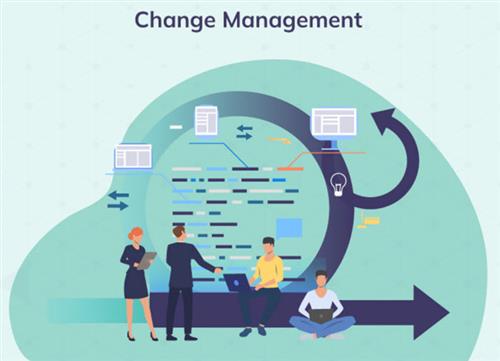


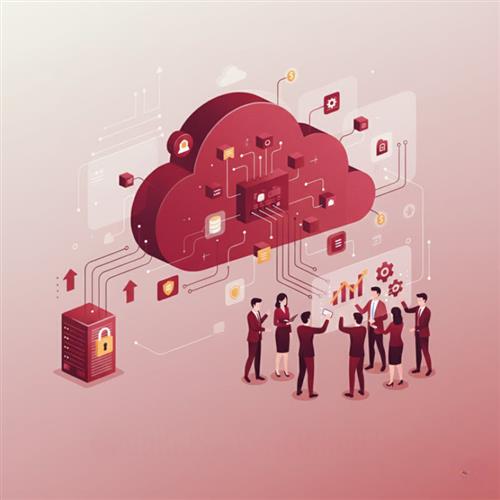


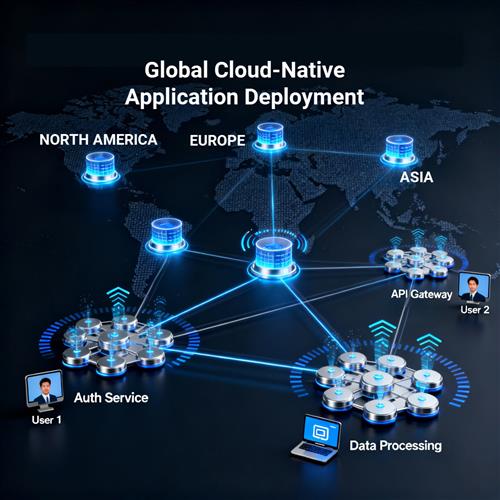




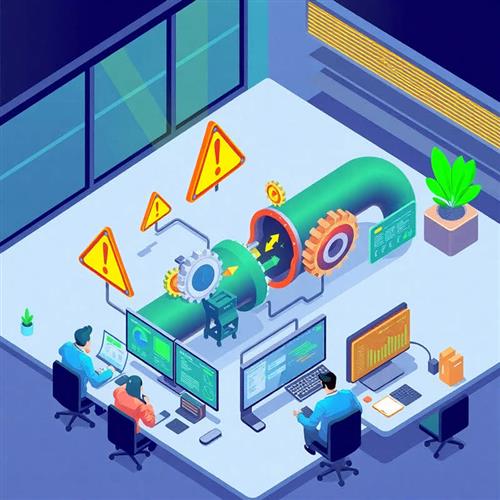

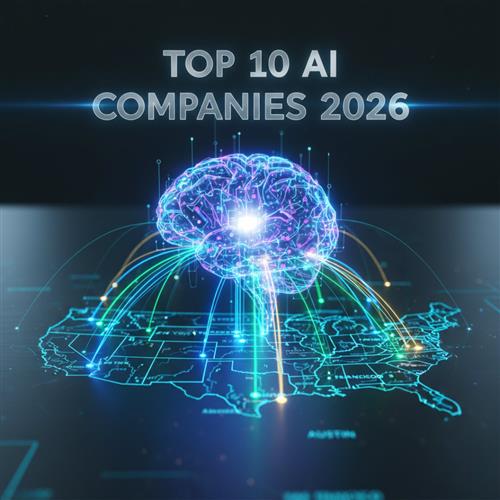
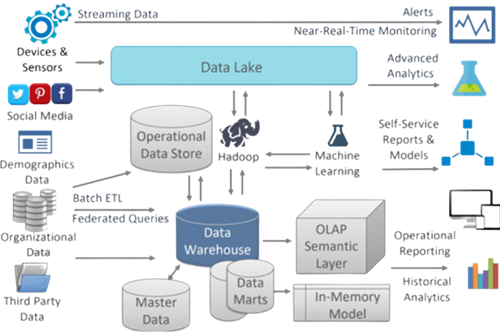

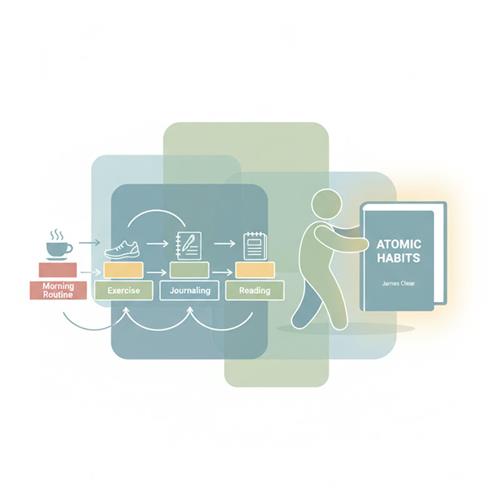











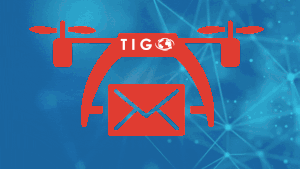
 Link copied!
Link copied!
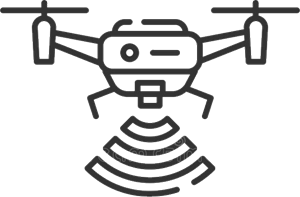 Recently Updated News
Recently Updated News